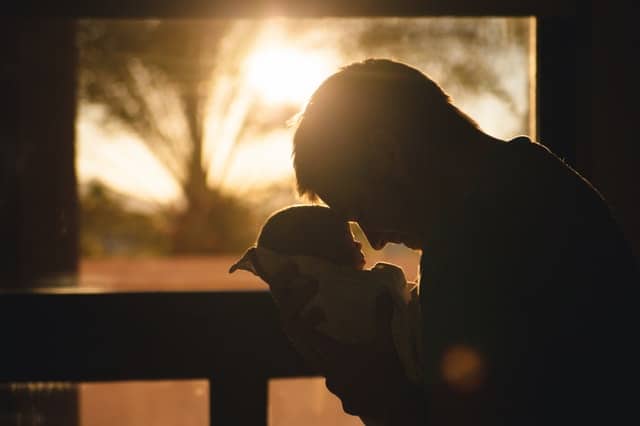Estate planning is often an overlooked subject for young adults and families. Some wonder what the point is when you are young and healthy. Others worry about money and bills, making estate planning the least priority. But what about when you have your first child and subsequent children years later? There is no more important time in one’s life to make estate planning a priority than after you have children. Not only do you have a spouse or significant other relying on you, but there is now a young child who relies on you for everyday care and financial support. It is so important to do estate planning after you have children.
If a parent, or parents, passes away without any kind of estate planning, your children will certainly suffer not only the emotion impact, but financially as well. Probate can be an extremely expensive, time-consuming and emotional process for the family to go through. The court appoints an administrator to divide your assets according to state law without any regard for family dynamics or the deceased’s unknown wishes. This can cause family tensions to get high when the court decides on something that is controversial to the family. In addition, this also means your estate will pay costs and fees to the probate court along with being subjected to a potentially public process. [1]
Perhaps the most important concern for parents when creating their estate plan is who will be the guardian of their children if one or both parents die. It is very important to name a responsible and trustworthy individual to be guardian for your children in the event of an accident. Again, if the parents do not have a will, the courts will step in and decide who will raise your children with sometimes no idea as to who would be the most responsible candidate in your eyes. [2]
Many parents assume that putting a child in their will to receive their assets is standard practice. Different states have different laws, but many states will honor the will by transferring the assets to the children at 18 or 21 years old. This lump sum can be a cause for concern for some parents and guardians. Another option is to create a trust for your children. You can designate a trustee, one who manages the distribution of the assets in the trust, to responsibly manage how and when you want your assets to be dispersed. This is a good solution if you want your children to receive your assets in smaller increments or if you want your assets to be put in a savings fund for your children, such as an education fund. [3]
Of course, with every major new life event that happens such as the birth of a new child or the death of your own parents, you should update your estate plans to ensure that names are correct as well as add any new assets that you may have. There are many parents that decide to start their estate plans after their children are grown. In that case, the structure of the trust and will can be set up differently to distribute assets in a way that makes more sense. If your children seem to be responsible adults, a lump sum distribution of your assets might not be an issue for you.
Again, your children depend on you for nearly everything. While it may not seem reasonable to get your estate together at a young age with a newborn baby, it is the prudent thing to do to make sure that your children are protected and well cared for in the future. Estate planning after you have children is one of the most loving thins you can do for your children. Getting your estate together for you children means that you decide who raises them, as well as provide a financial support system for their future. In the end, you will undoubtedly have peace of mind knowing that your children will be taken care of.
Bibliography
Forbes.Com, 2018, Accessed 13 June 2018.
Fuscaldo, Donna. “4 Reasons Estate Planning Is So Important”. Investopedia, 2018, Accessed 14 June 2018.
“Importance Of Single Parent Estate Planning | A People’s Choice”. A People’s Choice, 2018. Accessed 14 June 2018.
[1] Forbes.Com, 2018, Accessed 13 June 2018.
[2] Fuscaldo, Donna. “4 Reasons Estate Planning Is So Important”. Investopedia, 2018, Accessed 14 June 2018.
[3] “Importance Of Single Parent Estate Planning | A People’s Choice”. A People’s Choice, 2018. Accessed 14 June 2018.


